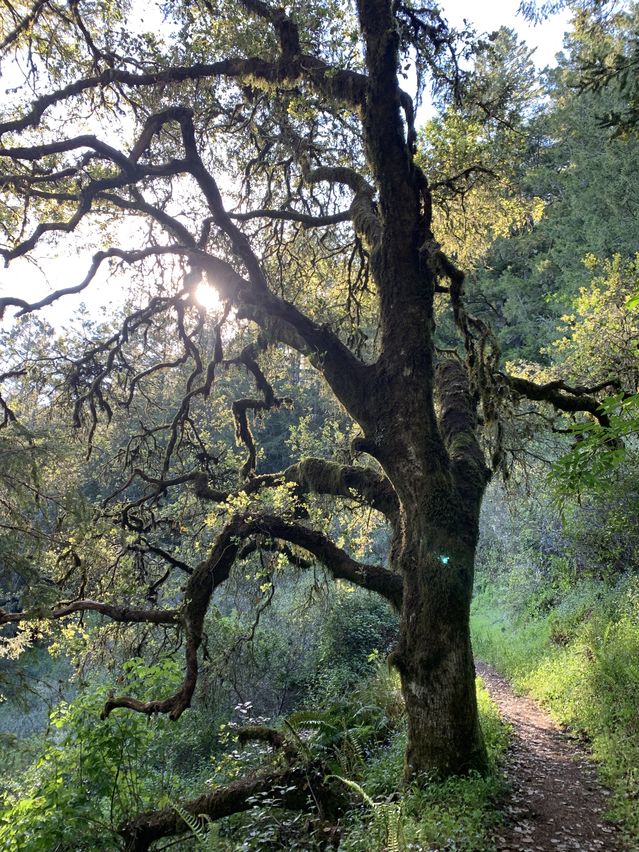Coronavirus Disease 2019
Missing the Unessential During COVID-19
Unessential doesn't mean unimportant.
Posted May 7, 2020
I miss the unessential things.
When the threat of COVID19 led our governor to wisely ask the people of our state to shelter in place to prevent the spread of the virus, I first thought, “This will be great. I’ll have more time that I won’t spend commuting and more space to work on projects at home.” While I was also disappointed to have an upcoming vacation and some speaking engagements at conferences cancelled, it seemed like an opportunity for that long-awaited quiet time to chip away at the to-do list and to read that endless pile of books that lives next to my bed, what I like to call “the graveyard of good intentions.”
My work as a university professor and a psychiatric nurse practitioner was largely transitioned online, and my weeks became shaped by the time spent looking at and talking with students, residents, and patients in little boxes on my screen, trying to understand what they were saying when it sounded as though every fifth word had turned to garbled Klingon.
Then I started to feel that something was missing. Like many, I spent too much time reading news headlines and looking aghast at the magnitude of the epidemic. The topic of work meetings and Zoom calls with friends invariably centered around the pandemic and how it was both frightening and surreal. It began to feel like the pandemic was the only thing that was alive in the world.
Then something even stranger happened. I realized I missed my commute. I missed work meetings. I missed running errands. I missed the small talk that happens in the hallways. I missed the unessential things.
These were all things that could be worked around, of course, so they were not considered necessary, but slowly, I became aware of their absence. Without these demarcations of time, my days felt spent adrift in a sea of time, the boat being the confines of my living room. That list of things on the to-do list didn’t get any shorter, and the books I did read were replaced by others that were awaiting their turn at my attention.
What I began to realize I had lost was the shape of time. These quotidian events, while maybe unnecessary, are crucial for creating the outlines of our days. They are negative space. Negative space in a painting is what lies between the objects on the canvas. It’s rarely appreciated as it serves in the background to define and highlight the subject of the painting. In a piece of music, it’s partially the space between the notes that differentiates a concerto from a cacophony. Negative spaces in our lives are often unappreciated and seem expendable, but these hollows hold the space between the events that we consider essential, and I miss them.
Antoine St Exupery wrote of the difficulty seeing these negative spaces with our eyes in The Little Prince, when the fox says to the Little Prince, “And now here is my secret, a very simple secret: It is only with the heart that one can see rightly; what is essential is invisible to the eye.” Without these negative spaces, a day seems to flow seamlessly into the next, prompting the Friday joke in our house that it’s almost time for “the days that start with S.”
I also miss connecting with friends and family. While I’m fortunate to live with people I love (and that we mostly tolerate one another), not everyone is so fortunate. I fear for people who are stuck living with someone in an abusive relationship. I’ve had a few dinner dates and happy hours with friends on Zoom, but I miss the unessential but utterly pleasurable experience of seeing a friend or family member, being greeted with a hug, and sharing a meal and a conversation together across a table. It is these events that bring color and texture to our lives and their absence has been felt deeply.
This isn’t entirely a terrible thing. While I still have classes to teach and clinics to oversee, I have the kind of time I’ve long fantasized about: time to dream, to write, to read those books that I seem to buy faster than I can read. There is a kind of spaciousness in my life that is not there when the unessential aspects of my life request my attention, for the negative space, undefined by definition, that also holds the possibility of the unknown. It is that frontier described by the poet David Whyte, of that which is appearing, and that which is disappearing. In his poem “What to Remember When Waking” he encourages the reader to linger in this mysterious space that lies between that which now exists and that new world that emerges each day with his line, “What you can plan/is too small/for you to live.” In that line, we are called to live into the essence of our lives, to bring our attention to that which is always emerging before us.
When we awake from the strange dream that will be referred to as “The Time of COVID,” how will we wake into that new world? As tempting as it is to imagine it will be the same world from which we departed, it can never be the same again. We may, strangely, long for these days spent both tense and adrift. But we have a choice as to how we view the essence of our lives. The writer Annie Dillard reminds us, “How we spend our days is, of course, how we spend our lives.” As we begin to contemplate our lives after this crisis is over, may we retain that inner spaciousness and a new appreciation for those things that were once unnecessary but are now most certainly essential.





